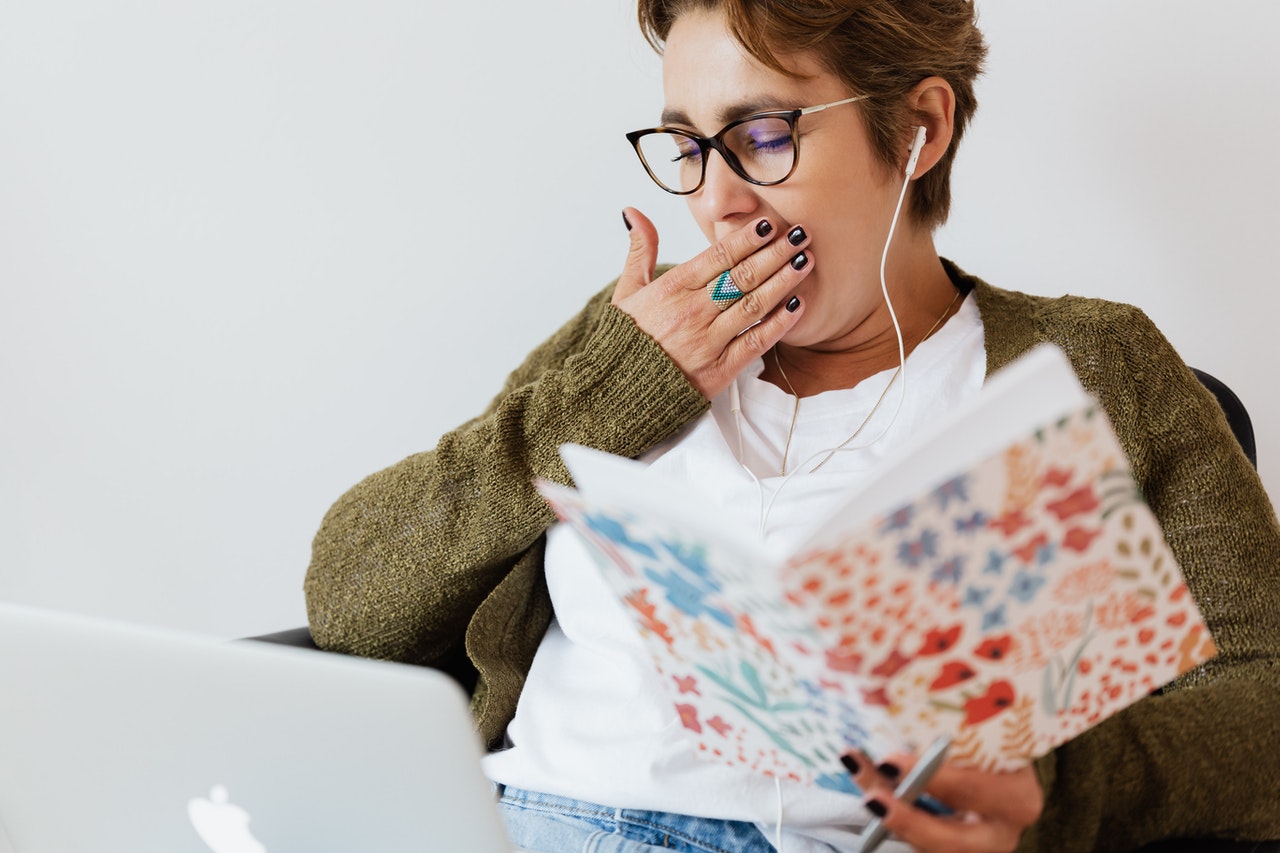Why Am I Still Tired After 8 Hours of Sleep?

You follow every rule in the book. You make sure to go to bed at a reasonable hour, convinced that you'll wake up rested and with more energy, and yet, even after full eight hours of sleep, you still don't. It feels like you've slept only half of that time, and your energy levels are pretty low!
So, what's the matter? Well, as it turns out, your sleep quality doesn't only depend on those eight hours of sleep. A healthy, restorative sleep happens when you take several factors into the equation, such as your age, your overall health, your circadian rhythm, vitamin deficiencies, your diet, your bedroom linen and your bedtime sleep habits.
Why You Can't Get a Good Night's Sleep Even After 8 Hours of Sleep
Lots of factors can stand behind your daytime fatigue; here, we'll focus on the most common ones out there.
Your Sleep Habits Are All Over the Place
Healthy sleep habits and good sleep hygiene are super important if you want to improve your sleep quality.
But what are healthy sleep habits? Well, first of all, it's crucial that you go to sleep and wake up at the same time. Yes, every day. This helps your circadian rhythm, a.k.a. your biological clock, to regulate itself. Now, everyone has their own internal body clock, meaning that not everything will work for everyone, so it’s important to listen to your body.
Let's say you're an early bird and find it much easier to wake up really early in the morning, which would mean that you should go to bed earlier as well. If that's the case, don't torture yourself by staying up late at night. If you're an early bird and go to bed at 01:00 a.m., but then you wake up at 09:00 and feel tired, even after eight hours of sleep, it means you should try something else. Try going to bed at 10 p.m. or 11 p.m. at the latest and wake up at 6 a.m. or 7 a.m. to see how that goes.
What's most important is to identify which factors are detrimental to your routine and then "focus on altering particular behaviors and patterns to overcome these factors."
This can mean the following:
- Make sure your sleep environment is comfortable to sleep in—quiet, with low light, and not too hot or too cold;
- Make sure you follow a regular sleep-wake schedule;
- Go to bed when you start to feel tired;
- Avoid consuming alcohol, caffeine, or smoking cigarettes several hours before going to bed as these can interfere with your sleep;
- Don't nap close to your bedtime;
- Make sure to exercise regularly, but not too close to bedtime.
You Have Sleep Apnea
Sleep apnea is a common sleep-related breathing disorder that obstructs breathing during sleep and prevents enough oxygen from getting to your brain. This can cause you to wake up several times a night, even without knowing it. Naturally, all of this decreases your overall sleep quality and leaves you pretty tired in the morning.
The problem with this sleep disorder, which most commonly is dubbed “obstructive sleep apnea,” is that people often don't know they have it. They find out after they continuously complain of feeling groggy, feeling fatigued in the morning, or when their partners complain that they snore really loud.
Sleep apnea is treatable, and if you think you may have it, make sure to talk to your doctor as soon as possible. They may prescribe you a CPAP machine, a device you can use at night that will tackle your sleep apnea problems.
Conclusion
Quality and quantity, unfortunately, don't always match up when it comes to sleep. While you do need to sleep the recommended amount of 7-9 hours every day, that's only part of the equation that helps you feel refreshed in the morning.
If you notice a pattern of low energy levels, make sure to do a general checkup on your health. Talk to your doctor to get to the bottom of it. The reasons can be both physiological and psychological (like poor mental health or a mental health disorder). Your doctor can tell you the best way to tackle this issue and get your restful sleep back.
